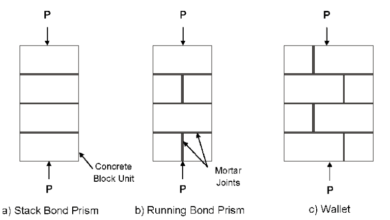Top Benefits of Effective Investment Property Management

Investing in property can be a lucrative venture, but it comes with challenges and responsibilities. Effective property management is crucial to maximize returns and ensure smooth operations. Here, we explore the top benefits of effective investment property management and how it can enhance your investment experience.
Maximized Rental Income
Setting Competitive Rental Rates
Effective property management involves conducting thorough market research to set competitive rental rates. This ensures that the property is overpriced, which could deter potential tenants, and underpriced, which could result in lost revenue.
Reducing Vacancy Rates
A competent property manager knows how to keep the property occupied. This involves strategic marketing multiple investment properties, efficient tenant screening, and excellent tenant services to retain existing tenants.
Timely Rent Collection
Property managers ensure that rent is collected on time, providing consistent cash flow. They handle late payments and enforce lease terms, which can be challenging for individual landlords.
Quality Tenant Management
Thorough Screening Process
Effective property managers conduct detailed background checks, including credit history, rental history, employment verification, and criminal records. This process helps select reliable tenants likely to pay rent on time and take care of the property.
Handling Tenant Issues
Property managers handle and manage all tenant-related issues, from maintenance requests to disputes, ensuring a harmonious living environment. This reduces the stress and time commitment for property owners.
Lease Enforcement
Property managers ensure that tenants adhere to all lease terms. This includes policies on noise, pet ownership, maintenance responsibilities, rent increases and more.
Professional Maintenance and Repairs
Regular Inspections
Routine property inspections help identify and address maintenance issues before they become significant problems. This proactive approach keeps the property in good condition and reduces long-term repair costs.
Access to Professional Contractors
Property managers often have established relationships with reliable contractors. This ensures that maintenance and repairs are carried out promptly and professionally, often at a lower cost due to these established business connections.
Emergency Handling
Effective property management includes 24/7 availability for emergency maintenance issues. This quick response can prevent minor issues from escalating into costly repairs and ensures tenant safety and satisfaction.
Legal Compliance
Staying Updated with Laws and Regulations
Property management professionals stay updated with local, state, and federal laws and regulations related to rental properties. This includes fair housing laws, landlord-tenant laws, and building codes, ensuring that the property owner remains compliant.
Proper Lease Agreements
A well-drafted lease agreement is crucial for protecting the rights of both the landlord and the tenant. Property managers ensure that lease agreements are comprehensive and legally sound.
Handling Legal Issues
In legal disputes, property managers can represent on behalf of the property owner in court or handle evictions, ensuring that all legal procedures are followed correctly.
Enhanced Property Value
Regular Maintenance and Upgrades
Regular upkeep and timely upgrades can significantly enhance the property’s value and rental market. Property managers ensure the property remains attractive and functional, increasing its market value.
Strategic Improvements
Property managers can recommend and oversee strategic improvements that boost rental income and property value. This includes renovations, landscaping, and adding amenities that attract high-quality tenants.
Time and Stress Savings for Owners
Delegating Daily Operations
Property managers free up the owner’s time by handling the daily operations organising maintenance of the property. This allows investors to focus on other pursuits, whether expanding their investment portfolio or enjoying personal time.
Expertise and Experience
Property managers bring expertise and experience, which can be invaluable, especially for new investors. Their market knowledge, tenant management, and property maintenance can help avoid common pitfalls and maximize returns.
Financial Management and Reporting
Accurate Accounting
Property managers provide detailed financial reports, including income statements, balance sheets, and cash flow statements, to help property owners understand their investments’ financial performance.
Budgeting and Planning
Effective property management includes creating budgets for property expenses and planning for future investments. This financial foresight of good property manager ensures that the property remains profitable and funds are available for necessary expenses.
Tax Assistance
Property managers can assist with tax-related matters, such as providing income and expense reports for tax filing and helping identify potential tax deductions, which can result in significant savings.
Frequently Asked Questions
What is investment property management?
Investment property management involves overseeing and managing real estate properties rented out to tenants. This includes setting rental rates, marketing the property, screening tenants, handling maintenance and repairs, collecting rent, and property management fees and ensuring legal compliance.
Why should I hire a property management company?
Hiring a property management company can save you time, money, and reduce stress by handling day-to-day operations. Property managers have expertise in tenant screening, legal compliance, maintenance, and financial management, which can help maximize your rental income and maintain your property’s value.
How do property managers determine the rental rate?
Property managers conduct thorough market research to have clients determine competitive rental rates. They analyze location, property condition, amenities, and current market trends to set a rate that attracts tenants while maximizing your rental income.
What does tenant screening involve?
Tenant screening typically involves checking the applicant’s credit history, rental history, employment verification, and criminal background. This helps ensure that tenants are reliable, financially stable, and likely to take care of the property.
How often should property inspections be conducted?
Regular property inspections are essential for maintaining the property’s condition. Typically, assessments are conducted quarterly or biannually, along with move-in and move-out inspections. This helps identify and address maintenance issues early.
What kind of maintenance and repairs do property managers handle?
Property managers handle all types of maintenance and repairs, from routine tasks like landscaping and cleaning to emergency repairs like plumbing and electrical issues. They coordinate with reliable contractors to ensure timely and cost-effective services.
How do property managers handle rent collection?
Property managers implement efficient rent collection systems, often using online platforms for convenience. They enforce lease terms, follow up on late payments, and take appropriate actions, such as issuing late fees or initiating eviction processes if necessary.
Read also: How you can purchase a property in Dubai without being a Dubai Resident?
What happens if a tenant needs to be evicted?
Property managers handle the eviction process if a tenant violates the lease agreement or fails to pay rent. This involves serving eviction notices, finding tenants, representing the property owner in court, and following legal procedures to remove the tenant.
How do property managers ensure legal compliance?
Property managers stay updated with local, state, and federal laws regarding rental properties. They ensure that lease agreements, tenant interactions, security and property conditions comply with all legal requirements, reducing the risk of legal issues for property owners.
How can property management enhance my property’s value?
Effective property management enhances the property data’s value through regular maintenance, timely upgrades, and strategic improvements. By keeping the property in good condition and making enhancements that attract quality tenants, property managers help increase the property’s market value.
Conclusion
Effective investment property management offers numerous benefits that enhance the profitability and ease of managing rental properties. Professional property management is a valuable asset for any real estate investor, from maximizing rental income and maintaining property value to ensuring legal compliance and saving time for property owners. By leveraging the expertise of property managers, investors can enjoy a more profitable and stress-free rental property ownership experience.





